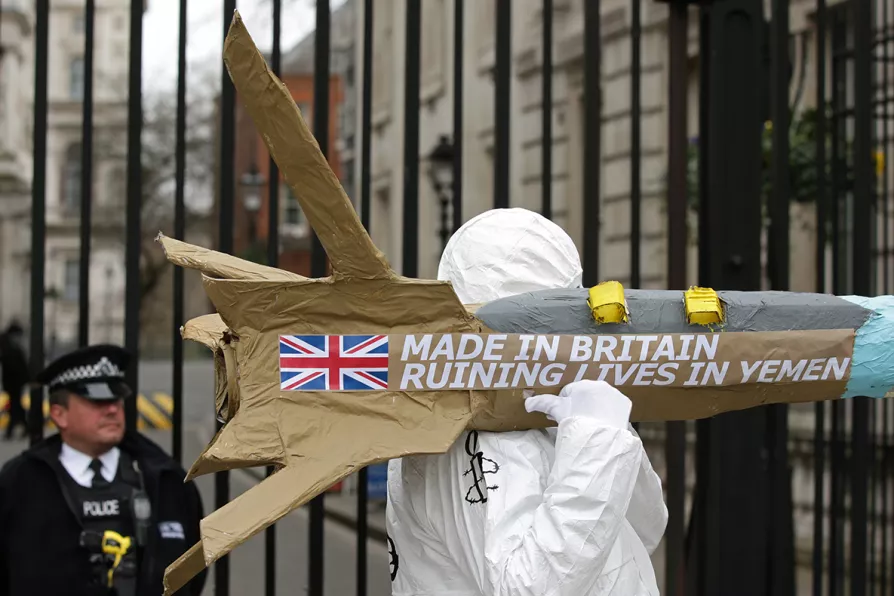As tens of thousands return to the streets for the first national Palestine march of 2026, this movement refuses to be sidelined or silenced, says PETER LEARY

 Campaigners from Amnesty International carrying a batch of five giant dummy missiles to Downing Street in London, in March 2016
Campaigners from Amnesty International carrying a batch of five giant dummy missiles to Downing Street in London, in March 2016
SAUDI Arabian forces along with those of the United Arab Emirates (UAE) invaded Yemen in March 2015 to reverse the popular uprising led by Houthi rebels. The Saudis main war aim has been to reinstate the puppet leader, the unelected president Abed Rabbo Mansour Hadi, to power. Hadi fled to Riyadh after being toppled by the Houthis (from north-western Yemen) in September 2014. The Saudis regard the Houthis as being too closely aligned to its major regional rival, Iran.
All of the countries comprising the Gulf Co-operation Council (GCC) except Oman are supporting the war. Other Arab countries, such as Morocco, Egypt and Jordan, have also offered help.
Britain, the US and nations across the European Union are complicit in the ongoing war in Yemen. The US and Britain are providing intelligence and logistics, while the use of British-made fighter jets and British-made bombs and missiles has had a devastating impact, including the loss of many civilian lives. Britain’s government has supported the coalition with billions of pounds of arms sales.

As the UAE-backed RSF carries out drone strikes on humanitarian infrastructure in war-torn Sudan, the US sells more weapons to the UAE, writes PAVAN KULKARNI













